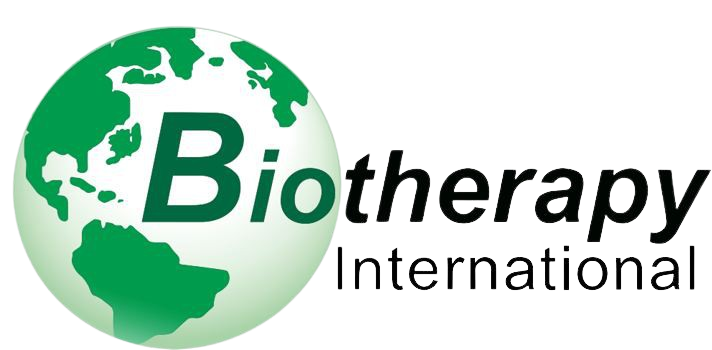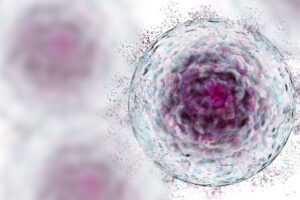Stem cell therapy is a cutting-edge area of medical science focused on restoring damaged body tissues caused by disease, injury, or aging. Central to this approach are mesenchymal stromal stem cells, which can be sourced from various origins including the patient, donors, or placental and umbilical cord tissue of newborns, whether related or unrelated.
The highest concentrations of these MSCs are typically found within placental or umbilical cord tissue, although their abundance decreases with age. In adults MSCs can still be extracted from bone marrow or adipose tissue, albeit in lower amounts.
While historically recognized for their ability to differentiate into bone-forming osteoblasts, cartilage-forming chondroblasts, or adipocytes responsible for fat cell production, recent scientific advancements have unveiled the transformative potential of MSCs, showcasing their ability to differentiate into cells resembling various tissues, including nervous tissue and beyond.
Which Diseases Can Respond to Stem Cell Therapy?
MSCs possess remarkable potency, making them promising candidates for regenerative medicine applications that extend beyond conventional evidence-based practices. These versatile cells may be able to address various medical conditions such as certain neurological disorders, autoimmune diseases, renal or liver ailments, musculoskeletal issues, and diabetes.
In neurology, stem cell therapy offers hope for mitigating damage arising from neuroinflammatory or neurodegenerative diseases like multiple sclerosis, amyotrophic lateral sclerosis, dementia, autism, and Parkinson’s disease. Preclinical and pilot clinical studies indicate promise in using MSCs to enhance nervous system function post-stroke or spinal cord injury, primarily by facilitating remyelination, a crucial process for nerve impulse transmission. Stem cells’ anti-inflammatory properties not only aid in neuronal structure restoration but also regulate autoimmune responses.
Orthopedic surgeons frequently employ MSCs to address joint and ligament damage, facilitate bone fracture healing. MSCs are even used for bone regeneration, via advanced techniques such as 3D-printed templates. Furthermore, MSCs may be able to combat diabetes-related inflammation and complications, including atherosclerosis and vascular disorders.
Beyond their regenerative abilities, MSCs demonstrate significant anti-inflammatory and anti-fibrotic effects, useful in treating skin scarring and fibrosis, as observed in conditions such as liver cirrhosis. With their wide-ranging therapeutic potential, MSC-based treatments offer avenues for managing inflammatory, degenerative, autoimmune conditions, and fibrosis-related disorders.
Diseases Treatable with MSCs
Neurological Disorders
Multiple Sclerosis Treatment with Stem Cells
Amyotrophic Lateral Sclerosis (ALS) Treatment with Stem Cells
Stroke Treatment with Stem Cells
Parkinson’s Disease Treatment with Stem Cells
Autism Spectrum and Asperger’s Syndrome Treatment with Stem Cells
Alzheimer’s Disease Treatment with Stem Cells
Autoimmune Disorders
Crohn’s Disease Treatment with Stem Cells
Ulcerative Colitis Treatment with Stem Cells
Systemic Lupus Erythematosus (SLE) Treatment with Stem Cells
Vitiligo Treatment with Stem Cells
Diabetes
Type 1 Diabetes Treatment with Stem Cells
Other Disorders
Spinal Cord Injury Treatment with Stem Cells
Kidney Disorders Treatment with Stem Cells
Vascular Disorders Treatment with Stem Cells
Liver Disorders Treatment with Stem Cells
Is Stem Cell Therapy with MSCs Safe?
With over 1,500 patients treated at Biotherapy International, stem cell therapy using mesenchymal stem cells (MSCs) has demonstrated a remarkable safety profile. Notably, none of these patients have reported severe side effects, with the majority experiencing positive treatment outcomes and improvements in their quality of life. Administration of MSCs via intravenous or intrathecal (cerebrospinal fluid) routes has proven to be well-tolerated.
Crucially, Biotherapy International adheres to strict safety protocols and never uses embryonic stem cells in our treatments. Extensive laboratory testing has consistently shown that embryonic stem cells can transform into malignant cells, posing a risk of cancer development. In contrast, the adult MSCs used by Biotherapy International are deemed entirely safe for medical applications.
Treatment with Mobilized Stem Cells
At Biotherapy International, we offer advanced treatment using stem cells sourced directly from patients. Through the use of specialized agents, we mobilize these multipotent stem cells from the bone marrow into the bloodstream. Once circulating, these stem cells can be activated and directed towards damaged organs using innovative non-invasive devices.
Distinguishing ourselves from other clinics, Biotherapy International employs unique technology to enhance the therapeutic effectiveness of circulating stem cells. Our approach combines activation, targeting, and host-conditioning through deep trans-magnetic stimulation. Key technologies utilized include Low-level Laser Light Therapy, Acoustic Shockwave Therapy (AST), and Deep Transmagnetic Stimulation (dTMS).
This comprehensive approach ensures optimized outcomes for our patients, leveraging cutting-edge techniques to harness the full potential of mobilized stem cells in addressing various medical conditions.
Legislative Considerations in Stem Cell Therapy
The regulatory landscape surrounding the use of multipotent stem cells for regenerative medicine remains relatively uncharted territory in the USA, Europe, and some Asian countries. Public apprehension regarding MSC treatments often arises from misconceptions, particularly where MSCs are conflated with embryonic stem cells, which carry risks of malignant transformation and are entangled in ethical and religious controversies.
Contrary to embryonic stem cells, adult mesenchymal stem cells, such as those advocated by Biotherapy International, pose no risk of malignant changes while having significant therapeutic potential. However, regulatory authorities remain cautious due to the absence of large-scale prospective randomized trials.
Clinical trials involving MSCs present unique challenges, as each patient receives a personalized therapy regimen, unlike standardized drug treatments. Moreover, pharmaceutical companies, while typically funding drug trials, show limited interest in financing MSC trials due to the distinct nature of cell therapy.
Encouragingly, organizations such as the FDA, several European countries, and the Israeli Ministry of Health are now considering the official use of stem cells. However, formal decisions are pending, delaying access to modern and effective treatments for patients in these regions. In response, Biotherapy International has established a branch in Germany, where cell therapy can be provided on compassionate grounds, bridging the gap until broader regulatory approval is secured.
Our Patents and Scientific Publications on Stem Cell Therapy
Biotherapy International’s research activities have resulted in four patents and several scientific publications.
1) Methods, systems and compositions for neuronal differentiation of multipotent stem cells.
This therapy was designed to replace missing or damaged cells and tissues of the nervous system and restore its functions. Multipotent neural stem cells could be used in various degenerative and inflammatory diseases of the nervous system, including spinal cord injuries and stroke.
https://patents.justia.com/patent/10421961
2) MicroRNA for the generation of astrocytes
This is a method to create a population of astrocytes (auxiliary tissue of the brain) that can be used to treat certain brain disorders. Astrocytes are star-shaped glial cells found around neurons and in the areas of contact between two neurons. This type of cell transfers nutrients from the blood to the neurons and is key to the functioning of the brain.
https://patents.justia.com/patent/10034902
3) Generation of neural stem cells and motor neurons A
This is a method to create neural stem cells or motor neurons. Motor neurons in the spinal cord, which innervate skeletal muscle, originate from neuroepithelial cells in the developing spinal cord. These motor neurons cannot renew, so any loss or degeneration usually causes fatal or irreversible neurological conditions, including paralysis or disorders such as childhood spinal muscular atrophy (SMA) and amyotrophic lateral sclerosis (ALS) in adults.
The method is used to treat a variety of neurological disorders, including multiple sclerosis, Parkinson’s disease, ALS, Alzheimer’s disease, spinal cord injury, and stroke.
https://patents.justia.com/patent/9803175
4) Methods for obtaining oligodendrocytes and their cell populations
Oligodendrocytes are a type of auxiliary cells in the nervous tissue that produce myelin. Myelin is used to create the myelin sheath that insulates neurons. As such, oligodendrocytes are the cells required to treat diseases like multiple sclerosis which arise from demyelinating lesions in the central nervous system.
https://patents.justia.com/patent/9783781
5) Mesenchymal stem cells for vitro modeling and cell-based therapy of human diseases and banks thereof
A method of qualifying a mesenchymal stem cells (MSC) population being associated with a brain disease.
US patent number US2015/0024966A1
Our Publications
- Karussis D, Grigoriadis S, Polyzoidou E, Grigoriadis N, Slavin S, Abramsky O. Neuroprotection in multiple sclerosis. Clin Neurol Neurosurg. 2006 Mar;108(3):250-4.
- Prigozhina TB, Khitrin S, Elkin G, Eizik O, Morecki S, Slavin S. Mesenchymal stromal cells lose their immunosuppressive potential after allotransplantation. Exp Hematol. 2008 Oct;36(10):1370-6.
- Slavin S, Kurkalli BG, Karussis D. The potential use of adult stem cells for the treatment of multiple sclerosis and other neurodegenerative disorders. Clin Neurol Neurosurg. 2008 Nov;110(9):943-6.
- Karussis D, Kassis I, Kurkalli BG, Slavin S. Immunomodulation and neuroprotection with mesenchymal bone marrow stem cells (MSCs): a proposed treatment for multiple sclerosis and other neuroimmunological/neurodegenerative diseases. J Neurol Sci. 2008 Feb 15;265(1-2):131-5.
- Kassis I, Grigoriadis N, Gowda-Kurkalli B, Mizrachi-Kol R, Ben-Hur R, Slavin S, Abramsky O, Karussis D. Neuroprotection and immunomodulation with mesenchymal stem cells in chronic experimental autoimmune encephalomyelitis. Arch Neurol. 2008;65(6):753-761.
- Gurevitch O, Slavin S, Resnick I, Khitrin S, Feldman A. Mesenchymal progenitor cells in red and yellow bone marrow. Folia Biol (Praha). 2009;55(1):27-34.
- Karussis D, Karageorgiou C, Vaknin-Dembinsky A, Gowda-Kurkalli B, Gomori JM, Kassis I, Bulte JW, Petrou P, Ben-Hur T, Abramsky O, Slavin S. Safety and immunological effects of mesenchymal stem cell transplantation in patients with multiple sclerosis and amyotrophic lateral sclerosis. Arch Neurol. 2010 Oct;67(10):1187-94.
- Freedman MS, Bar-Or A, Atkins HL, Karussis D, Frassoni F, Lazarus H, Scolding N, Slavin S, Le Blanc K, Uccelli A. The therapeutic potential of mesenchymal stem cell transplantation as a treatment for multiple sclerosis: consensus report of the International MSCT Study Group. Mult Scler. 2010 Apr;16(4):503-10.
- Tichon A, Eitan E, Kurkalli BG, Braiman A, Gazit A, Slavin S, Beith-Yannai E, Priel E. Oxidative stress protection by novel telomerase activators in mesenchymal stem cells derived from healthy and diseased individuals. Curr Mol Med. 2013 Jul;13(6):1010-22.
- Kazimirsky G, Jiang W, Slavin S, Ziv-Av A, Brodie C. Mesenchymal stem cells enhance the oncolytic effect of Newcastle disease virus in glioma cells and glioma stem cells via the secretion of TRAIL. Stem Cell Res Ther. 2016 Oct 10;7(1):149.


